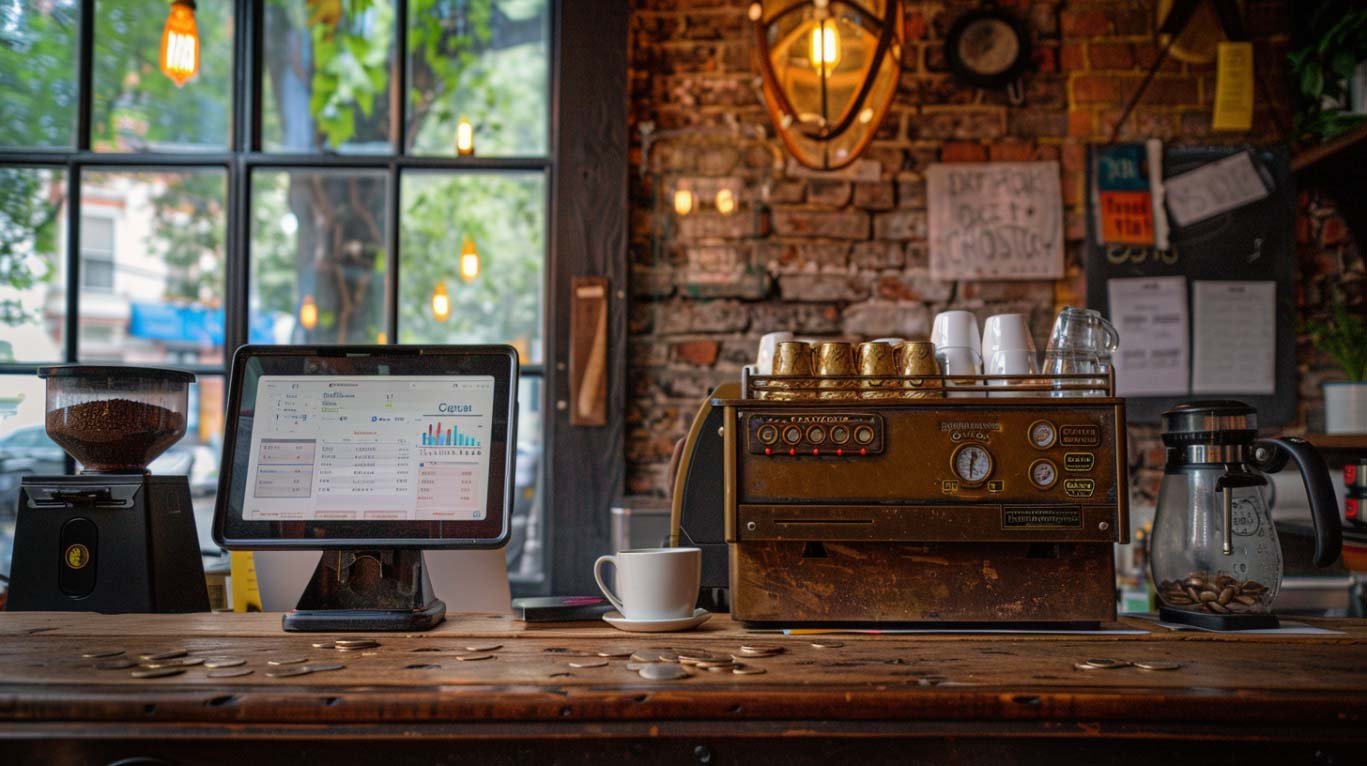Choose your path and get a fast SME energy quote or a domestic energy switching quote in minutes. Upload a recent bill, compare energy rates, and let us handle the switch—no supply interruption, no hidden fees, full commission disclosure.

UK cafés switching to a 3-year fixed energy tariff typically save between £150 and £300 annually compared to 1-year contracts, totalling £450 to £900 over the contract period. This represents 3-5% in cost reductions whilst providing essential price protection against market volatility.
Case studies show independent operators achieving electricity savings ranging from £650 to £950 through strategic contract management. Given café profit margins of just 8-12%, these savings considerably impact profitability. The following sections investigate ideal timing strategies and real-world examples to maximise these benefits.
UK café operators face substantial and often underestimated energy expenditures that directly impact profitability.
Annual energy costs typically range from £5,000 to £20,000, depending on establishment size and equipment intensity.
Energy costs for UK café operators vary dramatically, from £5,000 to £20,000 annually based on size and equipment demands.
Small cafés with modest electricity usage still face bills around £2,260 to £4,430 annually.
Businesses with 1-9 employees typically spend £3,200 to £7,300 on total energy costs.
These expenses stem from continuous operational demands.
Kitchen equipment runs throughout business hours, refrigeration systems operate 24/7, and heating, cooling, and lighting systems maintain customer comfort during extended opening times.
Most cafés operate seven days weekly, creating consistent high energy consumption.
Without government price cap protection available to domestic consumers, business energy rates remain vulnerable to market volatility.
Supplier pricing strategies rarely favour small establishments.
Many café owners overpay on their gas and electricity bills without realising the potential for significant savings.
Comparing over 20 suppliers can help identify the most competitive commercial energy rates available in the current market.
Structuring consumption data enables fair comparisons and reveals trends that support informed decision-making.
Understanding unit rates and standing charges alongside contract terms provides a complete picture of total energy expenditure.
Leveraging supplier competition through structured tendering processes can reduce total landed costs for high-usage establishments.
Using MPAN/MPRN data from existing bills allows for accurate comparison of available market options.
How much can UK café operators genuinely save by extending their energy contract commitments from one year to three? Real-world evidence demonstrates substantial benefits beyond simple pound-for-pound comparisons.
Three-year fixed contracts deliver several distinct advantages over annual arrangements:
Whilst one-year contracts require annual renewal during potentially volatile periods—as demonstrated when wholesale prices began rising after July 2020—three-year agreements shield operators from these fluctuations.
The trade-off involves £72 per fuel early exit fees. However, extended price certainty typically outweighs this limitation for established café operations.
Cafés choosing three-year contracts typically achieve savings between 3% and 5% compared to renewing one-year deals annually.
When wholesale energy markets shift unpredictably—as demonstrated by the anticipated £100 price cap increase from April 2025—café operators on variable tariffs face direct exposure to cost volatility that threatens profit margins. Fixed-rate tariffs eliminate this vulnerability by locking in unit rates and standing charges for the contract duration.
| Cost Component | Variable Rate Risk | Fixed Rate Protection |
|---|---|---|
| Unit Rates | Exposed to wholesale price spikes | Locked at ~16p/kWh electricity, ~4p/kWh gas |
| Standing Charges | Subject to policy cost increases | Fixed at 25p-34p daily electricity, 25p-61p gas |
With 26 fixed deals currently priced below the October price cap—offering average savings of £234—cafés gain budget certainty. This eliminates the need for constant supplier renegotiations.
For cafés operating on typical profit margins of 8 to 12%, even modest energy cost fluctuations can erode profitability substantially, making rate predictability essential for financial planning.
This protection proves particularly beneficial as new nuclear development charges and infrastructure upgrade costs increasingly impact variable tariffs.
Real-world results from independent UK café operators demonstrate substantial financial benefits from strategic energy contract management.
Jenny’s café achieved £650 in annual electricity savings through contract switching, with total energy reductions reaching £860 per year across both electricity and gas.
Kate’s south London establishment saved £950 annually on electricity alone after rejecting E.On’s £2,700 renewal quote in favour of a competitive 2-year fixed rate.
Key savings patterns across the sector include:
Multi-year fixed contracts prevent automatic renewal price increases.
Professional energy consultants consistently secure rates superior to self-negotiated deals. The current market shows fixed tariffs now align closely with standard variable rates, making timing crucial for securing advantageous contracts.
These documented cases illustrate how proactive contract management transforms energy expenses from escalating costs into controlled operational outlays.
Strategic timing separates café owners who maximise energy savings from those who miss ideal opportunities. Suppliers typically contact businesses 49 days before contract expiration, creating the prime window for comparison shopping without penalty fees.
Café owners should never wait for automatic transfers to standard variable tariffs, which eliminate cost certainty and increase expenses.
Current market data reveals three-year fixed electricity rates at 23.6p/kWh versus 24p/kWh for one-year contracts, providing 3-5% savings across UK regions. Locking in rates during low electricity price periods maximises long-term protection.
Businesses signing three-year deals in September 2018 achieved measurable savings compared to one-year renewals. Fixed tariffs provide peace of mind against unexpected price rises that can disrupt café operations and profitability.
Proactive renewal searching within the 49-day window guarantees cafés avoid higher variable rate defaults whilst securing predictable monthly expenses for budgeting and competitive pricing strategies.